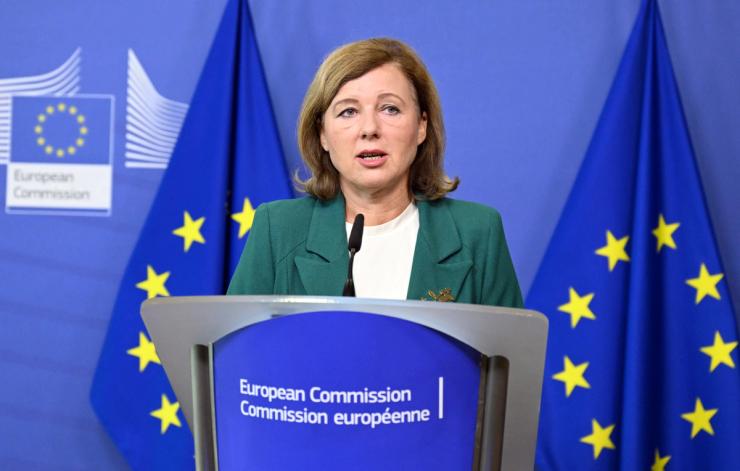The News
EU member countries reached an initial agreement on the bloc’s first law to tackle violence against women after months of debate.
The legislation, first proposed in March 2022, seeks to eliminate gender-based violence, forced marriages, female genital mutilation, and online harassment. The new text, which has not yet been revealed, does not include a definition of rape after opposition from countries including France and Germany.
The agreement “marks a historic moment for women’s rights in Europe,” said Frances Fitzgerald, a member of the European Parliament and the lead negotiator on the new law.
SIGNALS
Some lawmakers think the new rules fall short by failing to define rape
Several countries including Belgium, Greece, and Italy had pushed for a legal definition of rape based on non-consensual sex as part of the new law, pointing out that the restrictive definition of the crime in many countries had resulted in few successful prosecutions. But France and Germany have argued that rape does not fall under EU jurisdiction as it is a matter of criminal law in each member state and that without a legal basis “any country that opposes the regulations could go to the Court of Justice of the EU, and it could end up annulling the entire directive, which seeks broader protection for women beyond rape,” El País reported. Only 13 EU member states use a consent-based definition to criminalize rape, while others require showing the use of force, coercion, or threat. Some lawmakers had pressed for a common EU definition of rape, with one from Slovakia arguing that, “a woman raped cannot be considered only ‘oversensitive’ in one member state, while in the same case in another member state she would be considered a victim of a crime.”
The legislation tackles cyber violence as AI deepfakes surge
A key area tackled by the proposed law is cyber violence at a time when women are battling a tidal wave of digital abuse. Almost 96% of all deepfake videos online are non-consensual deepfake porn, according to a 2019 study by Amsterdam-based cybersecurity firm Deeptrace. Celebrities such as Taylor Swift have been targeted by deepfake attacks, drawing attention to the crimes, but protections for women who face cyber violence have been limited. Victims of explicit deepfakes have to rely upon “a patchwork of laws,” such as the EU’s privacy bill, the General Data Protection Regulation, and national laws on defamation, according to Politico. “The reality is that we know this could impact a person’s employability. This could impact a person’s interpersonal relationships and mental health,” one Australian activist who has faced image-based abuse told Euronews.



